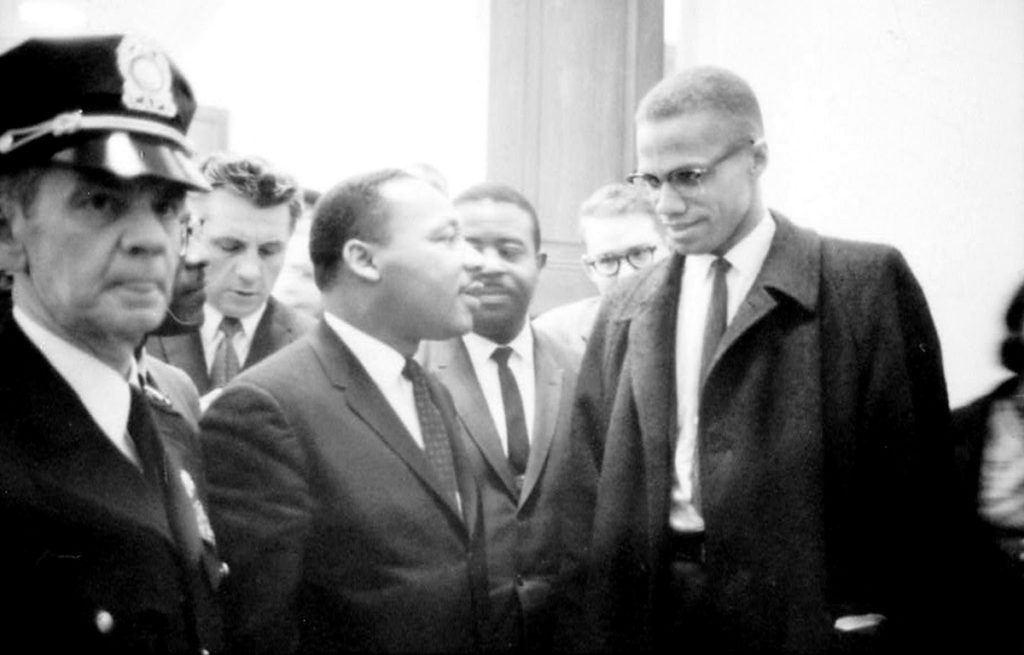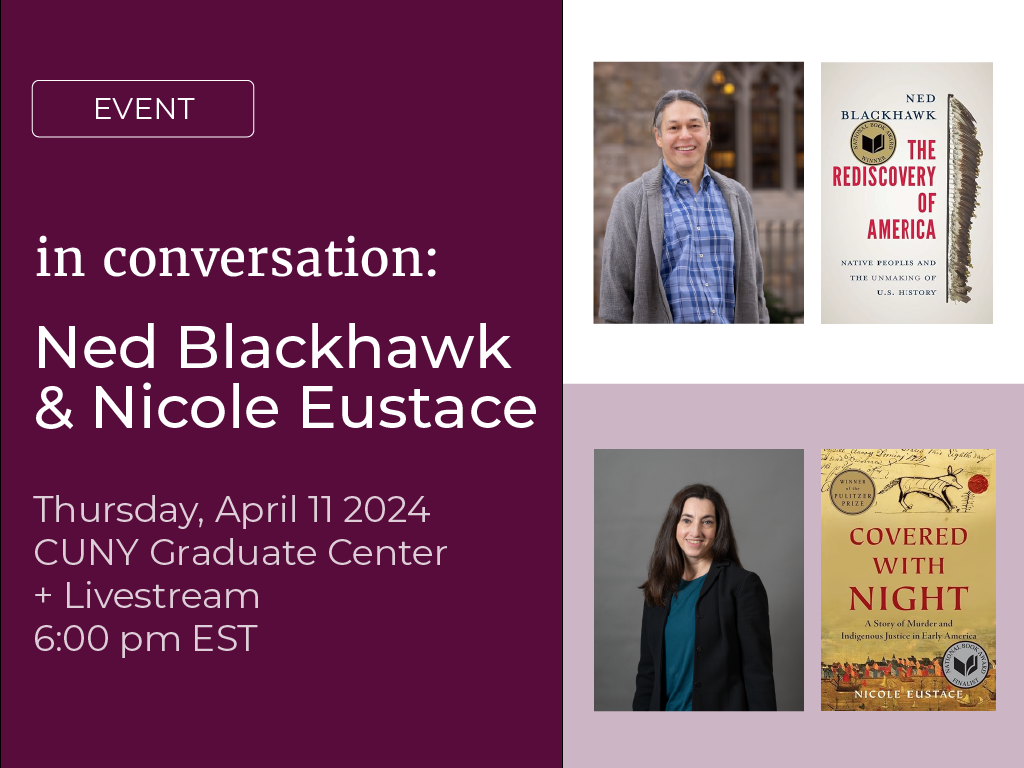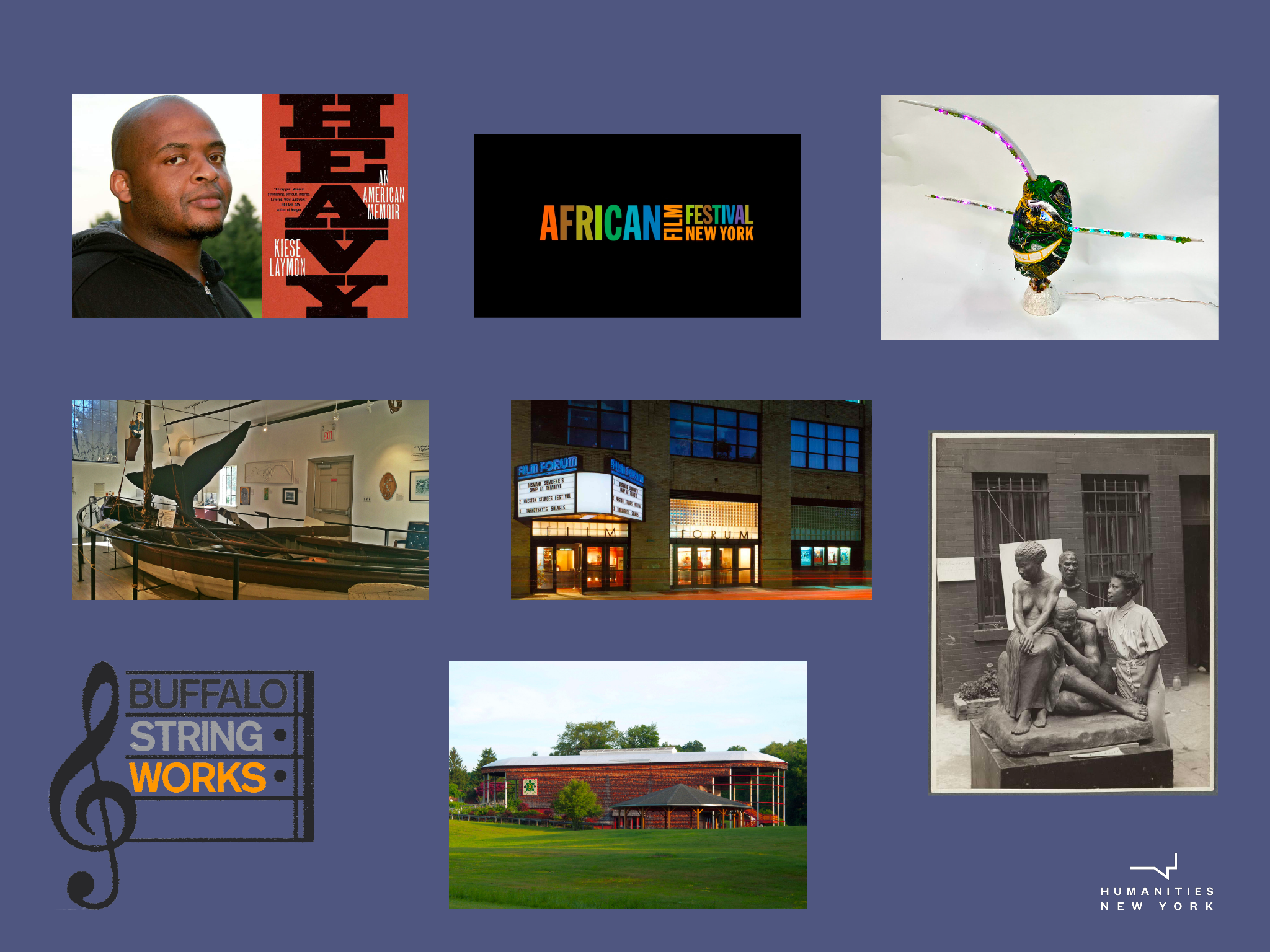Since the beginning of 2020, we have seen a social turmoil that has not been broadly expressed in at least a generation, marked by protests sparked by the all-too-common spectacle of a black man’s unjust death. George Floyd’s killing is a recent — but by no means even the latest — iteration of America’s gruesome heritage of racist violence. This heritage scaffolds the length of our history, its shadow dimming us and our institutions. As Ibram X. Kendi teaches us, indeed as he said at last year’s Buffalo Humanities Festival (video below), we at institutions all have influence on the matter of structural racism, and we all can take actions.
Starting next week, our Conversations on Your Couch series will continue with a focus on now. HNY already implemented Conversations on your Couch as a response to COVID-19, a crisis that continues to threaten our social, economic, and physical health. In June we held several conversations, this list originally complemented them. We invite you to continue the conversation with your friends and neighbors using this brief selection of texts and resources that explore some of the issues that inform our actions today. Each of these selections is available online, free of charge, and can be found below.
Some readings to get you started…
Letter from Birmingham Jail by Martin Luther King, Jr.
This is the most important document of the civil rights movement — and arguably one of the most pivotal documents in American history. King’s eloquent argument for the imperative to violate immoral laws is bracing in its moral clarity. If you’ve never read it or if you’ve read it 100 times, King’s letter is a powerful lens through which to view 2020.
The Ballot or the Bullet by Malcolm X
“The Ballot or the Bullet” is often read alongside King’s letter, and for a good reason. Although Malcolm X’s speech counsels his listeners to engage in electoral politics, he warns that there may come a time when black people must take up arms to claim their liberty. Although it might make some readers uncomfortable, this piece also illuminates and is illuminated by our current volatile moment.
The Minnesota Uprising in Context by Elizabeth Hinton
Historian Elizabeth Hinton places the recent unrest in Minneapolis in the context of both the civil rights movement and the political history of the African American liberation struggle.
The Uses of Anger: Women Respond to Racism by Audre Lorde
Poet Audre Lorde was also a trenchant and incisive social critic. This 1981 address looks at the interweaving of sexism and racism, and at anger’s efficacy as a tool in confrontations with hatred.
Dealing with Hate: Can America’s Truth and Reconciliation Commissions Help by Joshua Inwood
In 1994 South Africa convened its Truth and Reconciliation Commision to address that nation’s history of apartheid and race-based injustice. Although South Africa still contends with many issues, the TRC has largely been seen as effective at ending major cycles of race violence. Can this model work in the United States?
The History of Policing in the United States by Gary Potter
This collection of six essays is transparently titled: in each of these brief readings, historian Garry Potter takes us through the development of American policing.
The Case for Reparations by Ta-Nehisi Coates
This essay offers a forceful, expansive, compellingly told argument for the moral necessity of financially compensating African Americans for centuries of injustice, from slavery and Jim Crow up through red-lining and contemporary housing inequalities.
How To Cool It: An Interview with James Baldwin by Esquire Editors
Published soon after the assassination of Martin Luther King, Jr, the great writer directly addresses race relations in a time of social and economic upheaval.
Talking About Race, a resource from the National Museum of African American History
A resource that contains “digital tools, online exercises, video instructions, scholarly articles and more than 100 multi-media resources tailored for educators, parents and caregivers—and individuals committed to racial equality.”
What Kind of Country Do We Want? By Marilynne Robinson
“How is it,” Robinson asks early in this muscular essay, “that we can be told, and believe, that we are the richest country in history, and at the same time that we cannot share benefits our grandparents enjoyed?” Robinson’s probing response — an elegant weaving of economic history through her unique sensibility — asks us to rigorously question the values of American community that have become “common knowledge” but that quite often betray the nation’s humanistic founding ideals.
Poetry
“I saw Emmet Till this week at the grocery store” a poem by Eve L. Ewing
“America” a poem by Claude McKay
Video
Would a better understanding of history be an antidote to racism? Are America’s racial problems the result of a lack of knowledge? In this clip from an HNY Keynote Event, Brittany Cooper argues that we need to ask a different question: what are you afraid of?
Democracy and the Legacy of Racism: Chenjerai Kumanyika and Ibram X. Kendi. This event — which HNY hosted as part of the 2019 Buffalo Humanities Festival — explored the deeply interwoven history of American democracy and American racism.
Above: Martin Luther King Jr. and Malcolm X meet in Washington D.C. March 26, 1964. Photo Courtesy Library of Congress.
Don’t miss a conversation, sign up for our Newsletter.
Reading list compiled by Michael Washburn, Director of Programs, with help from fellow HNY staff members.



